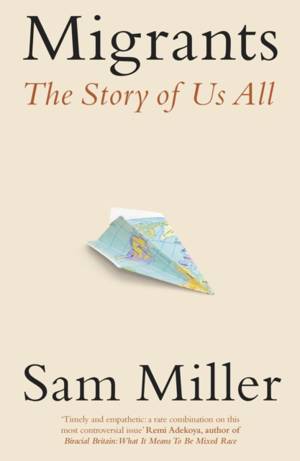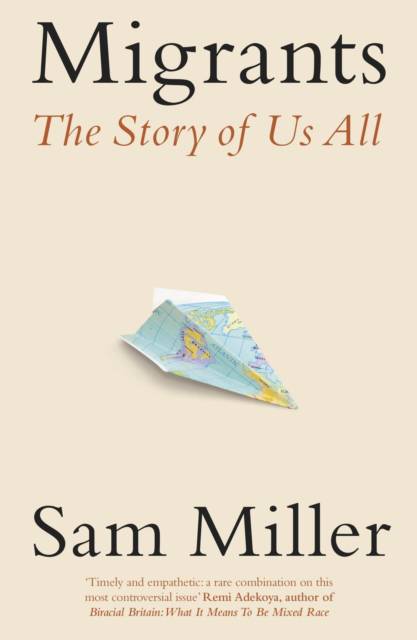
- Retrait gratuit dans votre magasin Club
- 7.000.000 titres dans notre catalogue
- Payer en toute sécurité
- Toujours un magasin près de chez vous
- Retrait gratuit dans votre magasin Club
- 7.000.0000 titres dans notre catalogue
- Payer en toute sécurité
- Toujours un magasin près de chez vous
Description
Migrants cuts through the toxic debates to tell the rich and collective stories of humankind's urge to move. 'Fascinating... Miller's perspective may be just what we need' Daily Telegraph
'Enjoyable, provocative and timely' Spectator
'Timely and empathetic: a rare combination on this most controversial issue' Remi Adekoya, author of Biracial Britain
'Tremendous: blends the personal and the panoramic to great effect' Robert Winder, author of Bloody Foreigners Humans are, in fundamental ways, a migratory species, more so than any other land mammal. For most of our existence, we were all nomads, and some of us still are. Houses and permanent settlements are a relatively late development - dating back little more than twelve thousand years. Borders and passports are much more recent. From the Neanderthals, Alexander the Great, Christopher Columbus and Pocahontas to the African slave trade, Fu Manchu, and Barack Obama, Migrants shows us that it is only by understanding how migration and migrants have been viewed in the past, that we can re-set the terms of the modern-day debate about migration. Migrants presents us with an alternative history of the world, in which migration is restored to the heart of the human story. And in which humans migrate for a wide range of reasons: not just because of civil war, or poverty or climate change but also out of curiosity and a sense of adventure. On arrival, migrants are expected both to assimilate and encouraged to remain distinctive; to defend their heritage and adopt a new one. They are sub-human and super-human; romanticised and castigated, admired and abhorred. Migrants tells us that this is not a new narrative; this is the history of us all, part of everybody's backstory - for those who consider themselves migrants and those who do not.
'Enjoyable, provocative and timely' Spectator
'Timely and empathetic: a rare combination on this most controversial issue' Remi Adekoya, author of Biracial Britain
'Tremendous: blends the personal and the panoramic to great effect' Robert Winder, author of Bloody Foreigners Humans are, in fundamental ways, a migratory species, more so than any other land mammal. For most of our existence, we were all nomads, and some of us still are. Houses and permanent settlements are a relatively late development - dating back little more than twelve thousand years. Borders and passports are much more recent. From the Neanderthals, Alexander the Great, Christopher Columbus and Pocahontas to the African slave trade, Fu Manchu, and Barack Obama, Migrants shows us that it is only by understanding how migration and migrants have been viewed in the past, that we can re-set the terms of the modern-day debate about migration. Migrants presents us with an alternative history of the world, in which migration is restored to the heart of the human story. And in which humans migrate for a wide range of reasons: not just because of civil war, or poverty or climate change but also out of curiosity and a sense of adventure. On arrival, migrants are expected both to assimilate and encouraged to remain distinctive; to defend their heritage and adopt a new one. They are sub-human and super-human; romanticised and castigated, admired and abhorred. Migrants tells us that this is not a new narrative; this is the history of us all, part of everybody's backstory - for those who consider themselves migrants and those who do not.
Spécifications
Parties prenantes
- Auteur(s) :
- Editeur:
Contenu
- Nombre de pages :
- 400
- Langue:
- Anglais
Caractéristiques
- EAN:
- 9780349144443
- Date de parution :
- 29-10-24
- Format:
- Livre broché
- Format numérique:
- Trade paperback (VS)
- Dimensions :
- 127 mm x 196 mm
- Poids :
- 317 g

Les avis
Nous publions uniquement les avis qui respectent les conditions requises. Consultez nos conditions pour les avis.






